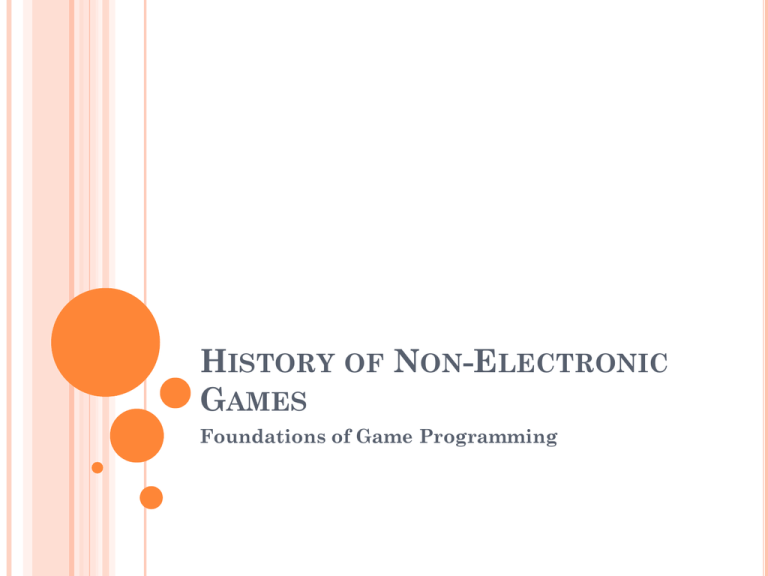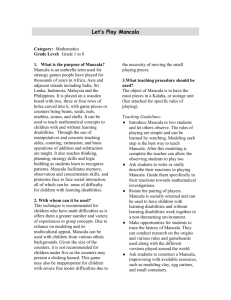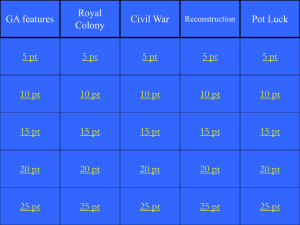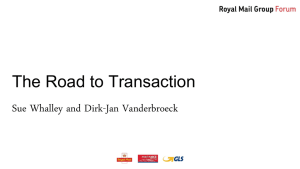History of Non-Electronic Games
advertisement

HISTORY OF NON-ELECTRONIC GAMES Foundations of Game Programming AT THE END OF THIS LECTURE, STUDENTS SHOULD: Give a brief history of non-electronic games Identify certain timelines in non-electronic game history WHY BOARD GAMES? For young children Spend time with the person you are playing with Learn about “taking turns” Letter recognition and reading Visual perception and color recognition Eye hand coordination and manual dextery Number and shape recognition, grouping and counting WHY BOARD GAMES? For young adults Increases mental capability Increase team sportsmanship Learn how to accept defeat Learn how to be a gracious winner Strength strategy Learn positive social skills LONG TERM BENEFITS ROYAL GAME OF UR MANCALA CHATURANGA THE LANDLORD’S GAME VAIKUNTAPAALI NINE MEN’S MORRIS THE MESOAMERICAN BALLGAME ROMAN ARENA GAMES OLYMPICS REFERENCES http://activities-for-seniors.info/indoor-group-activities-for-seniors-promotesocialization/indoor-group-activities-for-seniors-promote-socialization-seniorsplaying-scrabble/ http://www.bbc.co.uk/schools/primaryhistory/worldhistory/royal_game_of_ur/ http://monkeybuddha.blogspot.com/2012/02/ancient-history-of-games.html





















